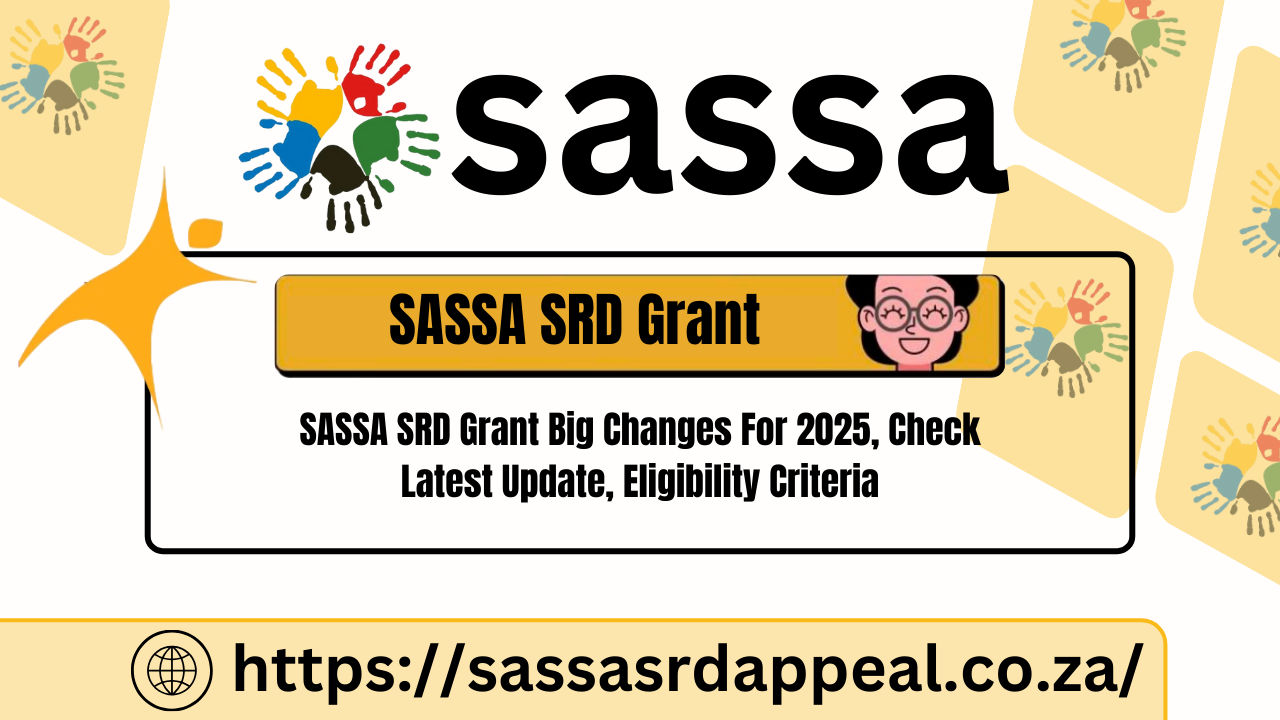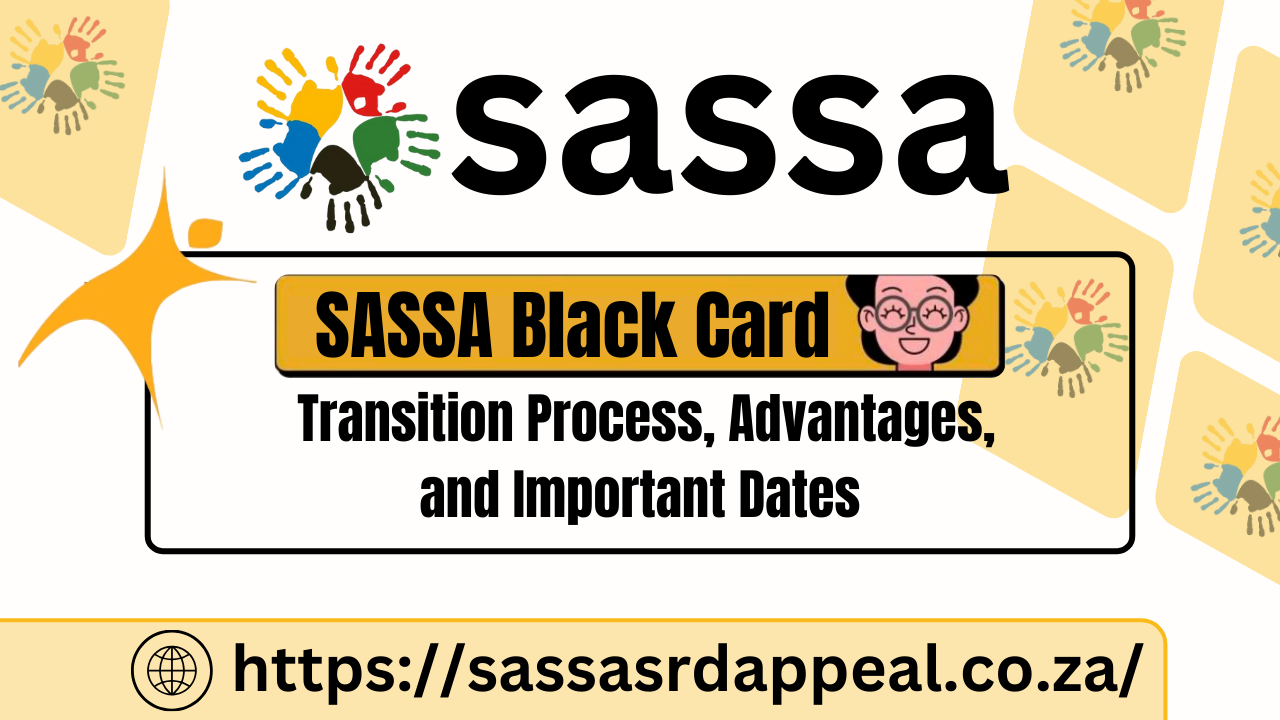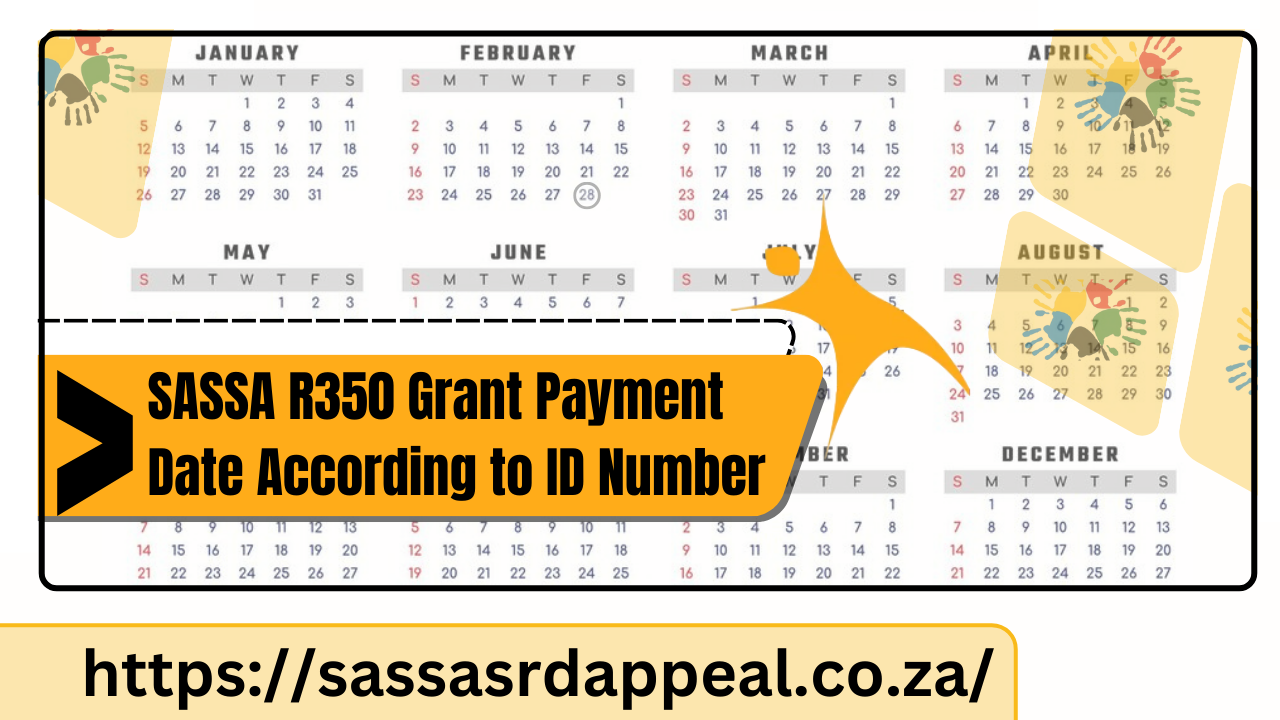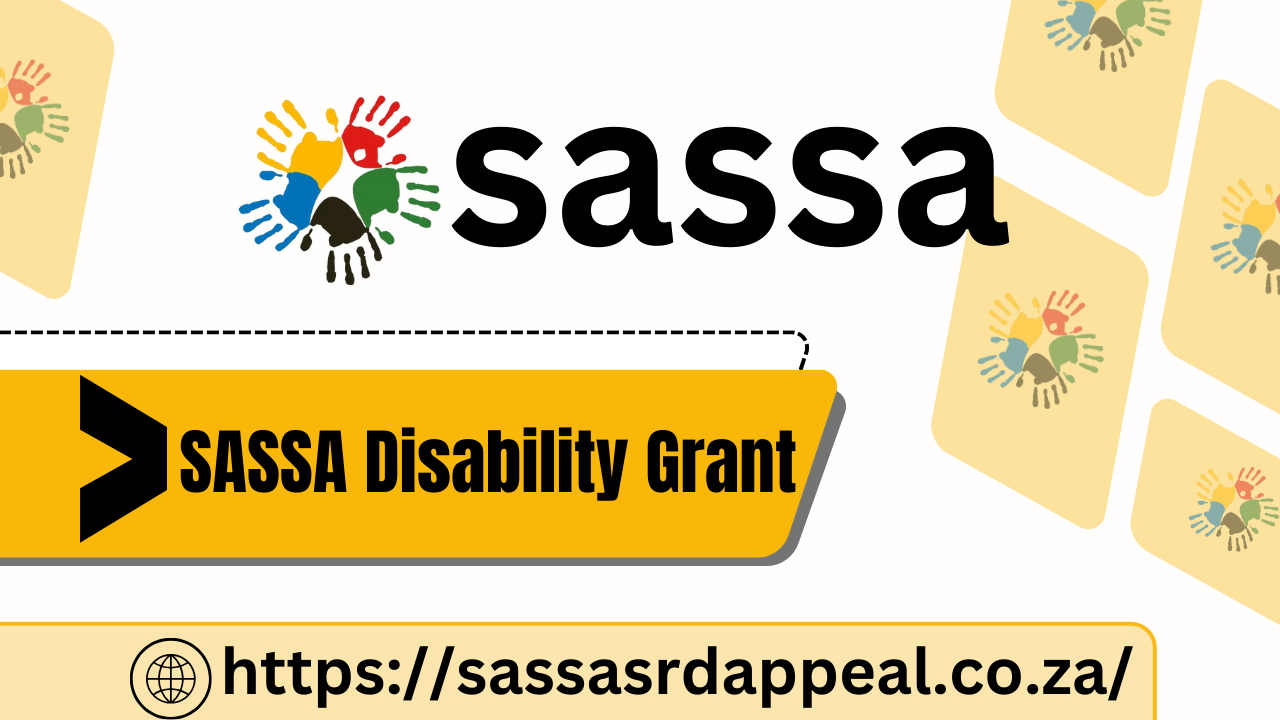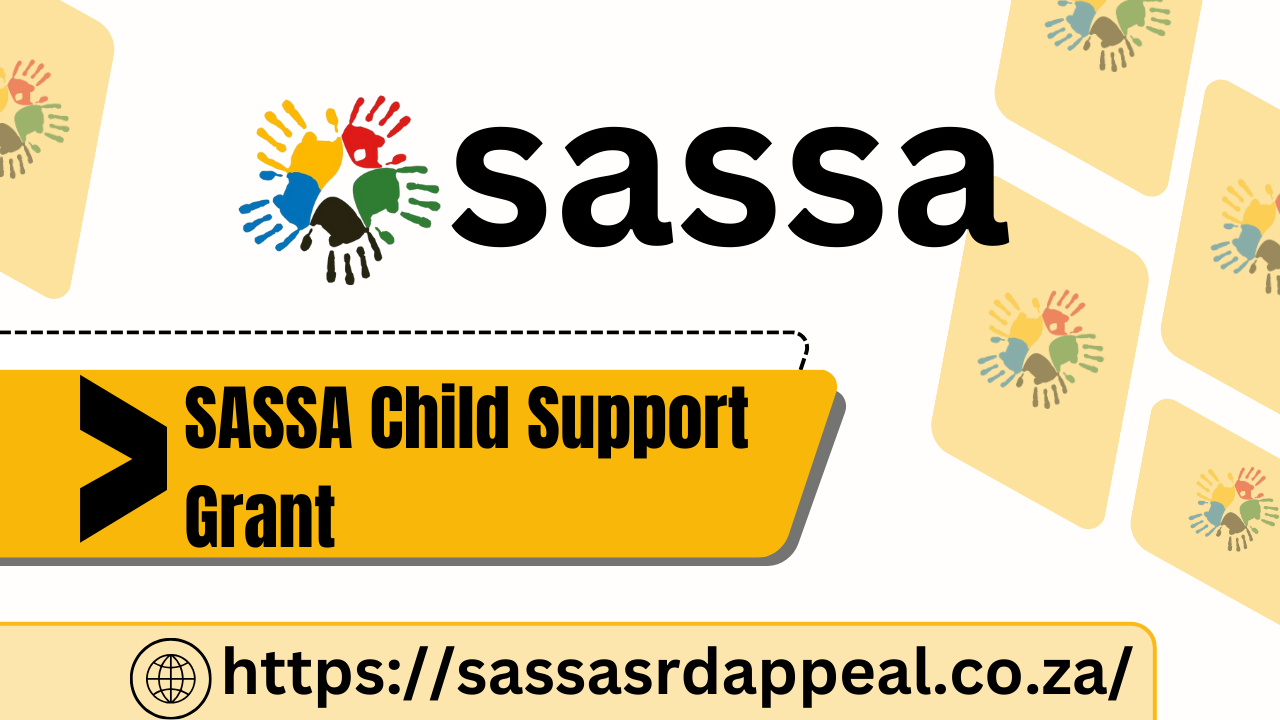SASSA Care Dependency Grant – Eligibility Criteria, Application and Status Check
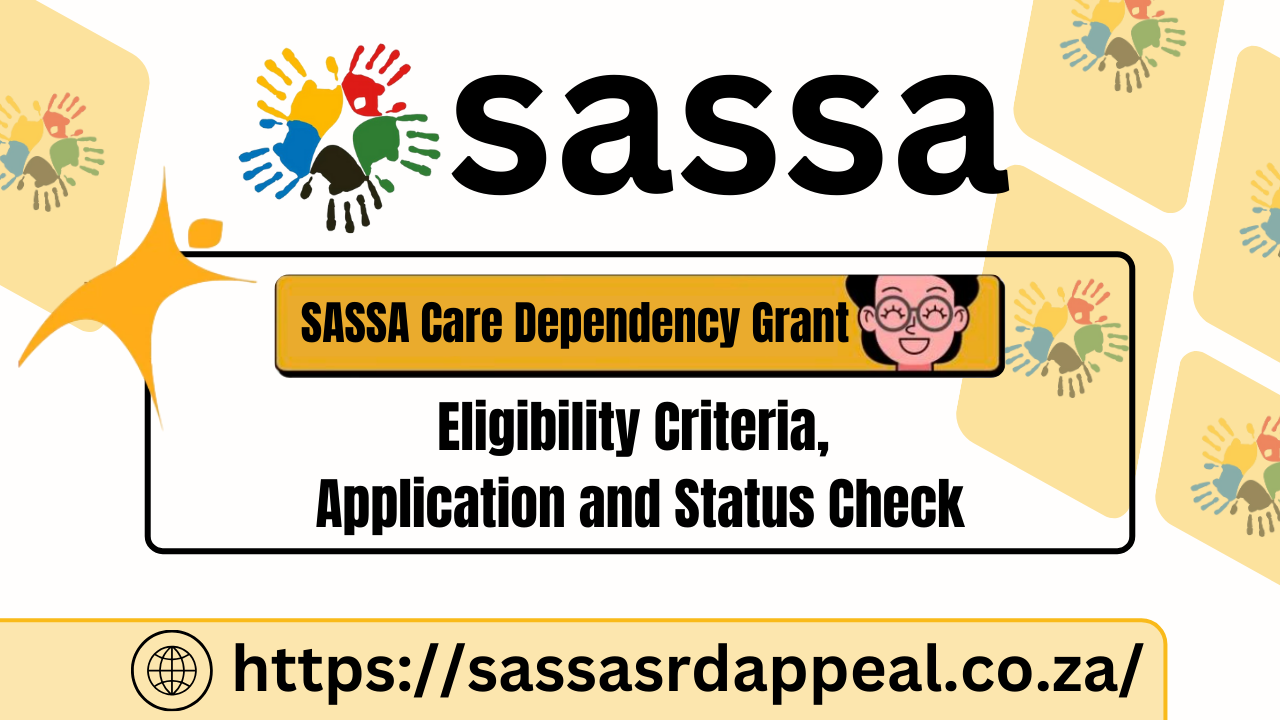
Care dependency grants (also called disability child grants) are grants provided by SASSA to parents, foster parents, or primary caregivers of children with severe physical or mental disabilities who require special or full-time care.
Children with disabilities are eligible for the grant beginning at birth and continuing until they turn 18. SASSA must appoint a doctor to assess the disability of the child, and the child should be receiving full-time care at home.
What is the SASSA Care Dependency Grant?
SASSA Care Dependency Grants are important financial assistance programs provided by the South African Social Security Agency (SASSA) for families with children suffering from chronic illnesses or disabilities. With the help of this grant, these children can receive the care and attention they need while their families can cope with the associated costs.
Social security, which includes appropriate social assistance if a person cannot support themselves or their dependents, is a right guaranteed by Section 27(1)(c) of the Constitution. SASSA Care Dependency Grant provides the means for people caring for disabled or chronically ill children to maintain their dignity and well-being.
Care Dependency Grants are constitutionally mandated to provide social assistance to those in need. By exploring them in greater detail, including their eligibility criteria and application process, we can gain a better understanding of how they make a positive contribution to the lives of vulnerable children.
Eligibility Criteria For SASSA Care Dependency Grant
Care dependency grants are available to applicants who meet the following conditions:
- Applicants must be South African citizens, recognized refugees, or permanent residents to qualify for the grant.
- Applicants must be parents, primary caregivers, or foster parents of children under the age of 18.
- A state institution should not be caring for the child long-term.
- Both you and your child must reside in South Africa.
- Providing evidence that the child is at home full-time with a severe disability is required.
- As a couple (if you are married), you should meet the means test requirements.
- Your annual income should not surpass R249 600 (R20 800 per month). Being married, the collective annual income must not be higher than R499 200 (R41 600 per month). This condition does not apply to the foster parents.
Required Documents for SASSA Care Dependency Grant
When applying for the SASSA Care Dependency Grant, you must bring the following documents (original or certified copies) to the SASSA office:
Identity Documents
- Your original 13-digit bar-coded ID (Identity Document).
- If you are a recognized refugee, provide your status permit and refugee ID.
- The child’s birth certificate with a valid ID number.
If you do not have an ID or the child’s birth certificate:
- Complete the SASSA standard affidavit form in front of an Oaths Commissioner who is not affiliated with SASSA. This form can be obtained from a SASSA official or downloaded from the SASSA website.
- Provide documentation from the Department of Home Affairs confirming that you have initiated an application for an ID and/or birth certificate.
- A temporary identity document card from the Department of Home Affairs (if applicable).
- Baptismal certificate (if available).
- School certificate (if available).
- Road to Health Clinic (RTHC) card (if available).
Proof of Marital Status
- Marriage certificate (if married).
- Divorce decree (if the marriage has been dissolved).
- Death certificate (if your spouse is deceased).
For married applicants, you must provide documents showing both your and your spouse’s earnings:
- Payslips or bank statements from the last 3 months.
- UIF card if you are receiving UIF benefits.
- A letter of termination from your previous employer or proof of UIF membership if you were employed.
- Pension receipt if receiving a pension.
If you are receiving financial support for the child:
- Proof of financial support you have received for the child or evidence that you have attempted to get financial support from the biological parents but were unable to.
Income Proof for the Child
If you are not the child’s biological parent, you must provide proof that you are the primary caregiver. You can do so with one of the following documents:
- Affidavit from a police station.
- Social worker’s report.
- Written consent from the biological parent authorizing you to care for the child.
- Letter from the child’s school principal confirming the child’s attendance.
- A court order designates you as the child’s legal foster parent (if applicable).
Medical Assessment
- A medical assessment report confirming the child’s disability and that they are receiving permanent care or support at home.
SASSA Care Dependency Grant Means Test
SASSA means testing ensures that only deserving individuals receive care dependency grants by evaluating their income. Single people cannot earn more than R249 6000 per year to qualify for the means test. Your combined annual income must not exceed R499 200 if you are married.
Foster parents don’t need to qualify for the means test, so the means test condition is not applied to them. If their child is severely disabled, foster child grant applicants can also apply for care dependency grants. The means test to evaluate an applicant’s financial eligibility varies by grant type.
How to Apply for the SASSA Care Dependency Grant
Important Note: If you enter your ID card number and phone number incorrectly, you might see a status of not found.
SASSA Care Dependency Grant Application is not Accepted
You can ask SASSA to review your grant application again if you believe the decision was incorrect. You may appeal SASSA’s decision at the National Department of Social Development if your reconsideration request is also denied, but you still disagree with SASSA’s decision. After receiving the notification, you have 90 days to initiate an appeal.
Your appeal will be reviewed by the Ministry of Social Development. Your grant payments will begin if they overturn SASSA’s decision. You will receive a written explanation of the decision if your appeal is denied.
SASSA Care Dependency Grant Payment Process
Your care dependency grant will begin paying you as soon as it is approved.SASSA releases the payment schedule every month since there are no fixed dates.
You can choose one of the following three methods for SASSA to pay your grant:
- You can receive a direct deposit into your bank account or Postbank account. You may be charged a service fee by the banks.
- SASSA-partnered retail outlets such as Pick n Pay, Shoprite, Boxer, Checkers, Usave, and Spar accept grant payments in cash.
- Specific institutions (such as old age homes, disability centers, or non-profits) may collect data.
To receive your grant payments through a bank account, you must complete the Consent Form for Bank Payment of SASSA Grant and submit each of the following documents:
- An ID document, birth certificate, or driver’s license proves your identity.
- You should have your bank account.
- Your name and account number must appear on a three-month bank statement.
It is easy to change your banking details or payment method whenever you want, just head to the welfare office and fill out the form. After the verification is completed, the new payment method will be used to receive payments the following month.
Nominate someone to collect payments on your behalf if you cannot collect the grant yourself, for instance, due to old age or disability.
SASSA Care Dependency Grant Balance Check
You can check your grant balance using the SASSA balance check service. You can manage your finances and make informed decisions about your grant money by checking your balance. Your care dependency grant application may be approved and you may receive grant payments after it is approved. You can check your grant balance by the following methods:
- By dialing USSD 1203210# or 12069277# through your cellphone
- Any ATM (normal bank charges may apply)
- SASSA WhatsApp number is 082 046 8553
- SASSA’s toll-free number is 0800 601 011.
SASSA Care Dependency Grant Updates
If SASSA decides to review your grant, it will be based on the income you declared in your application. You are reviewed to ensure that your circumstances have not improved yet and that you still meet the grant’s means test criteria. You are also checking to see if you are still alive. Every time your circumstances change, keep your application up-to-date to simplify the review process.
You will receive a written notice from SASSA before the deadline for submitting your life certificate (proof that you are alive). Also included in the written notification will be the date and location of the review.
If you receive your grant from a bank, institution, or agent, you must submit your life certificate annually to SASSA. SASSA officials will visit your home to conduct the review if you are bedridden. You will receive a compliance receipt with your application reference number after the review is complete. Upon expiration, refugee applicants’ status will be reviewed.
SASSA Care Dependency Grant Lapse Reasons
If you meet one of the following conditions, your care dependency grant will lapse:
- If the child passes away, the grant will end on the last day of the month in which they died.
- After the child is admitted to a state institution, the grant will expire at the start of the seventh month.
- After three consecutive months, the beneficiary of the grant has not collected the grant payments.
- A child who is not in the country.
- After the child turns 18, he or she may qualify for the disability grant on the last day of the month.
Benefits of SASSA Care Dependency Grant
The SASSA Care Dependency Grant is a government payment that helps families care for children with disabilities or long-term illnesses. Here are some of the key benefits:
- Financial Support for Caregivers: The grant provides money to help caregivers cover the extra costs of looking after a child with special needs, such as medical bills, treatments, and care.
- Better Care for Children: With the grant, caregivers can afford better care and services for children, including medical treatment and special equipment that improves their quality of life.
- Relief from Financial Stress: Caring for a child with a disability can be expensive. The grant helps reduce the financial pressure, making it easier for families to meet the child’s needs.
- Access to Extra Services: The grant can help families access extra services like therapy, healthcare, and educational support, which are important for a child’s development.
- Support for Non-working Caregivers: For caregivers who are not able to work full-time because they need to care for their child, the grant provides financial help so they can focus on caregiving without worrying about income.
- Security for Vulnerable Families: The grant helps vulnerable families who may struggle financially due to the extra care their child needs. It ensures that the child receives the care they deserve.
- Long-Term Assistance: The Care Dependency Grant is usually paid every month, as long as the caregiver continues to meet the requirements. This ongoing support provides stability for the family.
- No Repayment Needed: The grant is not a loan, so caregivers do not need to repay the money. It’s given to support the care of the child.
FAQs About SASSA Care Dependency Grant
Q1: Who qualifies for the SASSA Care Dependent grant?
If you are the parent, guardian, foster parent, or custodian of a child under the age of 18 who needs full-time care because of a mental or physical handicap, you may qualify for a Care Dependency Grant. Home care must be permanent for the child.
Q2: How to check the care dependency grant status?
You can check your SASSA status by visiting https://sassasrdappeal.co.za/. A guardian’s, foster parent’s, or custodian’s South African ID number is mandatory to have in hand and should be entered.
Conclusion
SASSA Care Dependency Grant provides financial support to caregivers of children with severe disabilities or chronic illnesses, ensuring that children receive the care they need. This grant helps relieve financial strain, improves the quality of care, and offers long-term assistance to vulnerable families.
